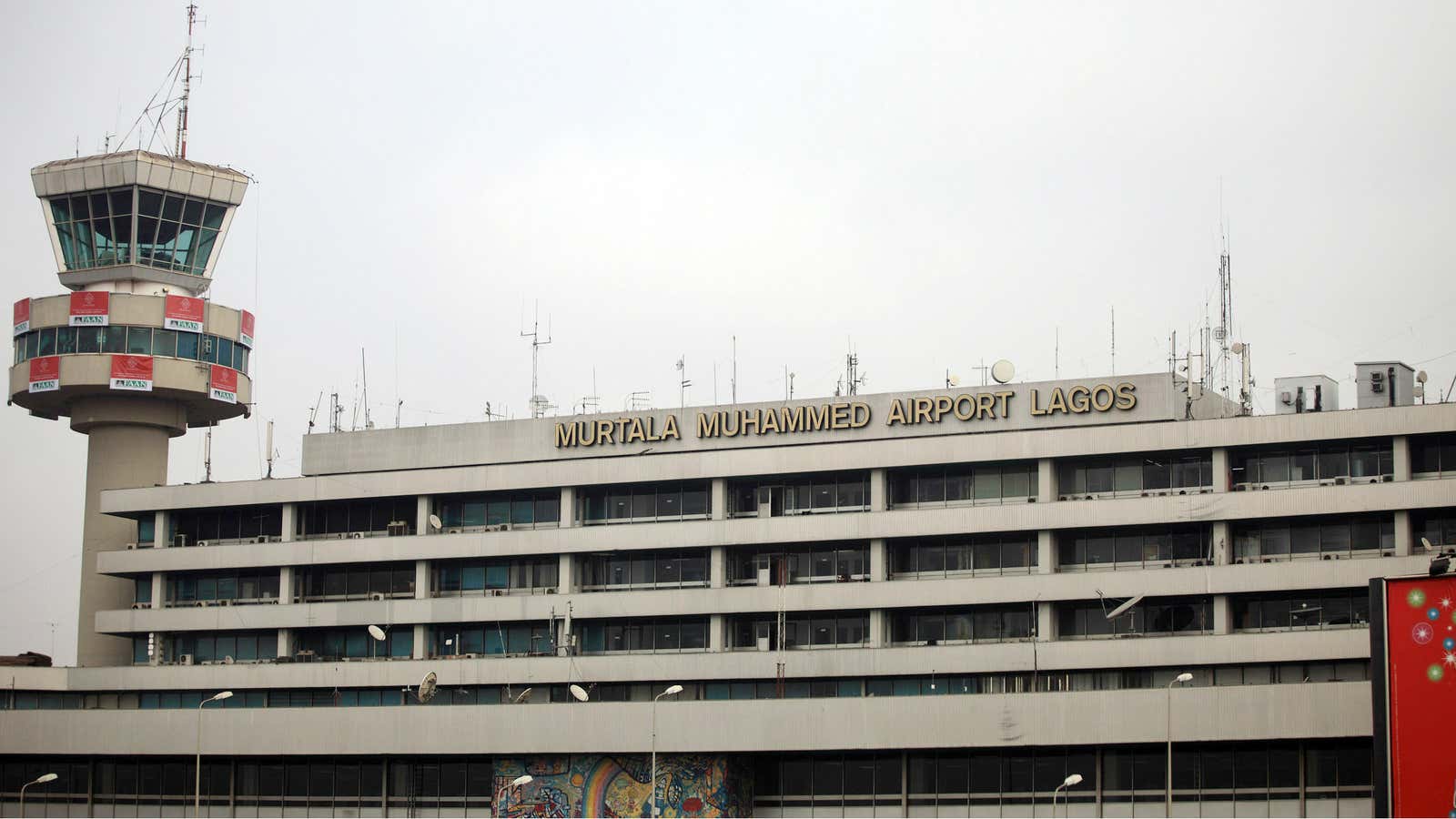When Timi and Ehis got married in a small, intimate ceremony in Lagos last October, it marked the start of their new lives together—but it was not one they planned to live in Nigeria.
Six months later, the young newlyweds both quit their jobs and moved to Ottawa, Canada joining thousands of middle-class Nigerians who have moved to the North American country through its skilled workers immigration program. Their reason for making the move boils down to one thing: thinking of their future children.
That sentiment cuts across board as thousands of Nigerians increasingly emigrate through a mix of avenues. Skilled worker programs (also referred to as Express Entry) inviting immigrants to Canada and Australia are a popular and legitimate choice. But other choices—including applying for asylum and refugee protection in Canada, sometimes while crossing the US-Canada border illegally—are being explored as well. As of March, Nigeria had more pending refugee protection claims in Canada than any other country globally. There’s also the choice of deliberately overstaying on a visitors’ visa in the United States, a trend that’s proven strong enough for the Trump administration to clampdown on US visas for Nigerians.
Whatever the method of emigration, pursuing the chance to seek a better life—particularly education for children—remains a common theme. Decades of under-funding have impacted the quality of teachers and lecturers as well as the learning infrastructure in Nigeria’s educational system, leading to significant decline.
Strikes by Nigerian university lecturers protesting low wages and inadequate benefits are now an almost annual occurrence. The lack of investment in public educational institutions has also fueled a rise in expensive private schools and universities for middle and high-income families seeking higher standards. But even those schools pale in comparison with quality of education obtainable outside Nigeria.
“The biggest area of concern for most people who are leaving is getting access to the right type of education for their children,” says Tunde Leye, an economist with Lagos-based SBM Intel who wrote a personal essay on the subject two years ago while considering the move himself. “The point of it all is that here, your money can’t buy you the quality of education that is available abroad and the gap will only get bigger.”

“Then there is the access to opportunities that become available to the children on the back of the education they have. The range of opportunities that are available to children in Nigeria is limited because the range of education is limited,” Leye says.
Wale Oyediran, a Berlin-based software engineer who left Nigeria last year, is wise to the importance of quality education and the advantage of being globally competitive, especially in a technology driven world. As a result, he says there is “no question” he will start his family abroad rather than Nigeria given “the opportunities and exposure” potentially available to his future children. “To raise kids that will have all they need to conquer the next generation is super expensive in Nigeria,” he says. “It is way easier outside [Nigeria].”
For his part, Oyediran remains interested in returning to Nigeria and contributing to the growth of the blooming tech industry but says the immediate priority is securing back-up options for economic security. “The [young] people that appear to be contributing to the current building process in Nigeria all have one leg outside the country with fallback plans like a second citizenship or residency,” he shares. “It seems stupid right now to put all one’s eggs in the Nigerian basket.”
Not looking back
The lack of faith in Nigeria’s political leaders and their ability to reverse the decline in the educational sector is such that many of the middle-class Nigerians making the exodus to Europe and North America do not trust the situation will change soon. The looming big picture for Nigeria is that many who either have emigrated or plan to are unlikely to return and neither are the children they raise in their new countries of residence.
Richard (real name withheld), an experienced lawyer says he moved to England last year mainly to ensure that his three children attend high school and university there. And as they’ve already “expressed a strong preference” for life there, Richard says it’s already “likely” his children will remain in Britain after their education. “They don’t like it when we joke about moving back in the short-term,” he says.
“Moving abroad is me giving my two children a chance to experience life in an environment that ‘works’,” says Opeyemi, a telecoms software specialist, who is due to move to Canada with her family within weeks having had their application approved. “I’ve decided my children will not be growing up in Nigeria and I won’t be encouraging them to move back home either.”
Meanwhile, for her part, Chinwe, a 29-year old digital marketing expert at one of the big advertising agencies in Lagos, is actively choosing to remain single as she waits on her application to move to Canada being approved. “I don’t want my kids to grow up here and so I’m not pursuing any serious relationships. One of my biggest fears now is having a child in Nigeria,” she says. “What I currently earn won’t be enough to provide a top-quality education if I have kids here but, in Canada, even the public schools are quite good.” Like Opeyemi, Chinwe is not big on looking back: “My kids won’t know anybody in Nigeria so there’s nothing for them to come back to and the country is only going to get worse anyway.”
It’s hard to miss the general dire outlook on the country’s prospects among Nigerians who emigrate but it’s even harder to miss the factors that inform that outlook. Nigeria’s unemployment rate has climbed for 13 consecutive quarters and an ambitious four-year plan to boost the economy following a recession in 2016 is proving to be a failure. As a consequence of slow economic growth, a ballooning population and years of failed leadership, Nigeria is not only the poverty capital of the world but is set to remain so for at least a generation given its alarmingly low human capital spending.
As it turns out, the ongoing emigration also compounds the problem as an important socio-economic demographic is increasingly choosing to leave. “Emigration is not cheap and most of the people leaving are not poor by any standard—it’s the rich and middle class that are leaving,” Leye says. “It’s an epidemic but people only do this kind of things when they’ve lost hope.”
But the grass outside Nigeria isn’t necessarily always greener for emigrants as they face real and expensive challenges of relocating, settling into a new country and starting over. For instance, securing white-collar, upwardly mobile employment does not come easy for emigrants especially in countries like Canada that place a strong emphasis on local expertise or education. As such, highly qualified individuals who leave high-level jobs in Nigeria often have to trade down to restart their lives.
In one case, an experienced optometrist, who asked not to be named, obtained a resident permit and moved to Calgary last year but says she will have to take expensive certification courses for up to four years before being able to practice and works at a grocery store in the interim. Perhaps unsurprisingly, it’s an even tougher reality for immigrants who move by overstaying visas illegally as, without valid work permits and social security, their job prospects are very limited.
Despite the known challenges, the possibility of a higher quality of life and education for their children remains a strong pull for several middle-class Nigerians who can afford to move. For their part, one month after moving to Ottawa, Ehis and Timi have both secured jobs and are positive they made the right choice. They also plan to start a family in Canada and stay there for the education of their future children. “That’s the major reason behind the move,” Ehis says.
In truth, the brain drain and exodus of middle-class Nigerians is not exactly new after similar outward waves during military regimes in the late 1980s to early 1990s and also since the turn of civilian rule in Nigeria. The difference, Leye argues, is that while the trend previously seemed restricted to “people in specific professions, now it’s more of a free for all” especially with countries like Canada looking to fill several gaps in their workforce and are offering diverse opportunities from software engineers and accountants to cooks.
One often cited upside of emigration is the chance of seeing skilled members of diaspora return to boost the local brain trust. But anyone banking on that future possibility simply needs to look to the past for answers, Leye says: “Those whose parents emigrated in the ’80s and ’90s are becoming some of the people we’re celebrating now as “Nigerian” success stories abroad. Those kind of people are definitely not coming back.”
Sign up to the Quartz Africa Weekly Brief here for news and analysis on African business, tech and innovation in your inbox
